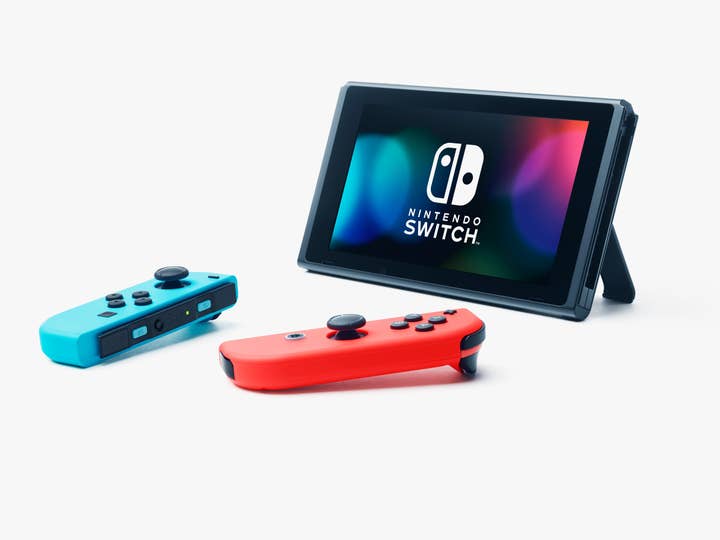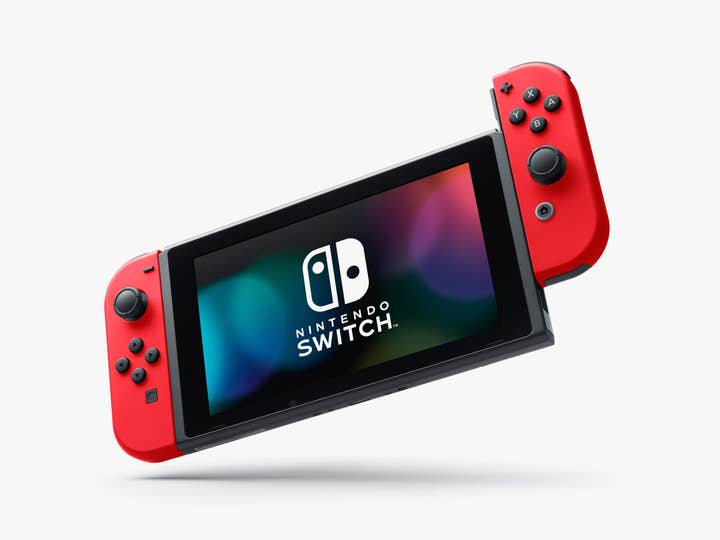Nintendo remains the industry's best long-term bet | Opinion
With Switch soaring and clear space ahead as competitors prepare next-gen offerings, Nintendo is back on top - and the long-term outlook is even more rosy
I was never a Nintendo kid. Game consoles weren't allowed in my household growing up, so my formative gaming moments all took place on hardware with more "educational value" -- specifically a series of Amstrad CPC home computers followed, much later, by a Gateway 2000 PC.
When I first started writing about games, Nintendo wasn't having a particularly great time in the home console market. It was the late 1990s, and while Pokémon was keeping the Game Boy comfortably afloat, PlayStation ruled the living room with the N64 so far behind that "second place" felt like a charitable turn of phrase. In the next generation, as much as I liked the GameCube, there would be no question about where it stood relative to the all-conquering PlayStation 2.
Without the deep love of the company's franchises that informed many of my colleagues, I found it hard to understand why everyone maintained that Nintendo was an important and vital industry player. Yet as I found my feet and learned my way around the industry, meeting people who were experienced veterans, movers and shakers who'd make time to impart a bit of knowledge to a wet behind the ears writer working on a declining industry trade newspaper, I heard one piece of wisdom echoed over and over again. In the long-term, nobody won by betting against Nintendo.
"The moments when everyone assumes Nintendo's on the ropes are when it comes swinging out of left-field with a product nobody sees coming"
Around 20 years later, I feel that Nintendo has proved this point fairly comprehensively. The company goes through rough patches, but they are never more than temporary declines; the moments when everyone assumes that it's on the ropes are the moments when it comes swinging out of left-field with a product that nobody sees coming.
When Game Boy had clearly reached the end of the line and Sony had unveiled a sleek, beautiful and powerful handheld which looked set to dominate the portable gaming market just as PlayStation had the living room, Nintendo swerved hard and created the DS -- a device that was roundly mocked at its reveal for being weird, and ugly, and clunky, and turned out to be a singularly visionary design that secured Nintendo's hold on handheld gaming for another decade. When Microsoft and Sony's escalating contest over graphical prowess and media functionality threatened to make the console market simply too expensive for a pure gaming company to compete in, Nintendo created the Wii; a low-powered console that couldn't even utilise high-definition displays and replaced the standard joypad with a weird little motion-sensing wand. It proceeded to outsell both of its rivals.
This week, Nintendo announced its financial results for the year ended March 31 and its early projections for the upcoming year; only a few days previously, NPD's data for US game and hardware sales in the first quarter appeared. Taken in concert, they tell a robust story: Nintendo has done it again. Coming off the disastrous failure of the Wii U and the steady (albeit relatively well-managed) decline of the 3DS handheld, the Switch console might have looked like a bit of a Hail Mary; if so, Kyoto's fervent prayers for intercession have been answered.

Much attention will undoubtedly be paid to the slightly lower than expected hardware sales number -- Nintendo had optimistically anticipated 20 million sales, which raised eyebrows in many quarters; it ultimately recorded just shy of 17 million sales -- but they remain impressive. The Switch is now sitting on an installed base of 34.74 million units, meaning it's outsold both the N64 and the GameCube in a little over two years on the market. Moreover, sales are still accelerating and the firm's guidance for 2020 is for 18 million units; more realistic than its bombastic 20 million prediction last year, and likely a deeply conservative estimate given the expectation that new Switch hardware, including a cheaper model, will appear later this year (the company has denied that it will debut any new hardware at E3, but didn't rule out announcing it elsewhere).
"Investors should temper their expectations. China isn't traditionally a great market for game consoles"
The NPD data provides some interesting context to that. Switch was the best-selling hardware in the USA through the first quarter, and Switch games ranked pretty well in the software charts, too; it's been around a decade since Nintendo had a result like this in the US sales rankings. It reflects the strength of the Switch and its line-up, of course -- five of Nintendo's first-party software titles for Switch have sold over 10 million units now, with Super Smash Bros. Ultimate hitting 13.8 million sales in a remarkably short space of time.
The broader context, however, is also important. PlayStation 4 has been an astonishing success story, but it's a console in its twilight years; great looking games remain in the pipeline and there's plenty to look forward to, but realistically hardware sales are going to drop off and the primary stimulus for them from now on will be price drops. Xbox never quite achieved escape velocity in this generation, and it's also facing a similar generational shift despite the impressive specs of the Xbox One X.
This leaves the field wide open for the next year to 18 months. Short of new, cheaper hardware opening up new markets for Sony or Microsoft, Nintendo has a remarkable window in which to make hay while the sun shines as the dominant player in the console space.
This is, of course, to say nothing of the elephant in the room: the Chinese market, and the indication earlier this week that Nintendo is negotiating with Tencent to launch the Switch there. That news sent shares in the company popping upwards, since a re-entry to China -- where Nintendo hasn't launched a home console since the iQue, a local variant of the N64 -- has been top of the wishlist of many investors in recent years. (Other investors are more focused on mobile games, where Nintendo reported a modest 17% income growth this year, though the launch of Mario Kart in the coming months could finally be the breakout hit the firm has been looking for in this area.)
However, Nintendo rightly downplayed the role of China in its investor briefing, saying that there's no agreed timeline for launching Switch there and that no revenue from a Chinese launch is included in its current forecasts. It is right to be cautious, and investors should temper their expectations. China isn't traditionally a great market for game consoles in the first place, but more importantly, a hookup with Tencent would be unlikely to generate the kind of revenue boost Nintendo is already enjoying from the dramatic resurgence of its core business, namely selling game hardware and software in Japan, North America and Europe.
"Don't bet against Nintendo in the long term" still holds true -- and anyone thinking this industry giant has peaked might want to take a look at Disney's financials for a hint of how Nintendo might look in years to come. Far more of Disney's revenues come from businesses related to its theme parks than from its movies, no matter how many box office juggernauts Marvel, Disney and Pixar produce. With Nintendo set to finally follow suit by collaborating with Universal Studios on its first Nintendo theme park in Osaka next year, I know where my long-term bets on the house that Mario built would lie.

